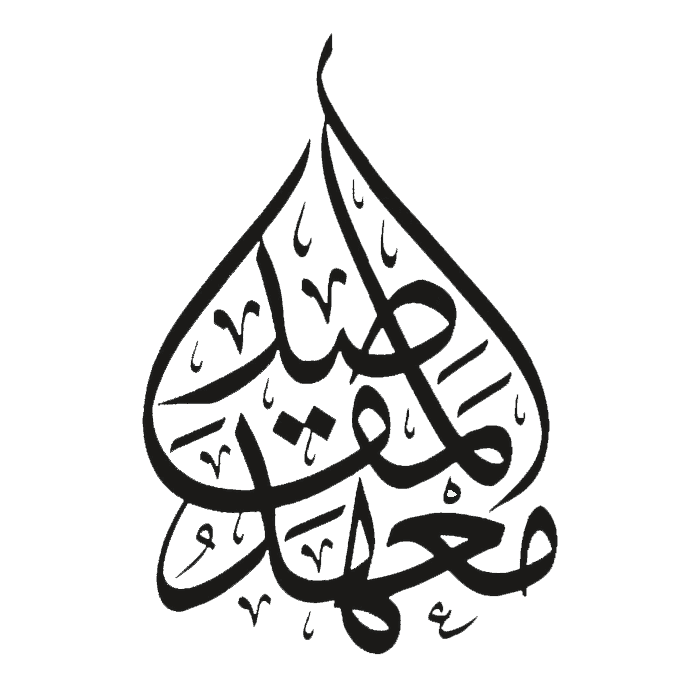by Dr. Ildus Rafikov
Do people think that they will be left (at ease) because they say, We believe, and they will not be tried?
Al-Qur’an, Surah Al-Ankabut, 29:2
We live in an age of complexity. Everything around us seems increasingly difficult to understand, making it challenging to find meaning. Navigating our daily lives successfully feels like a constant struggle, as we grapple with the intricacies of technology, industry, health, economy, politics, and relationships. The complexities of modern life can make us feel like we’re on a seesaw—just when one issue seems resolved, another arises, trapping us in a cycle of perpetual struggle.

Life’s challenges are not confined to adults; even small children experience difficulties, especially if they feel neglected or unloved. Adults, however, face a broader spectrum of problems: What to wear for work? Will my proposal be accepted? Will my contract be renewed? How to escape a traffic jam? Where to take the children on holiday? How to manage rising rent prices? How to deal with an unreliable supplier? And more dire concerns: How do I protect my family from an ongoing conflict? Where can we find refuge from war or persecution?
These and countless other issues burden our minds daily. Some are simple (e.g., what to have for breakfast), while others are profoundly complex (e.g., how to earn more in a corrupt environment while remaining truthful). The relentless march of complexity leaves us yearning for simplicity, for clarity, and for peace. However, contemporary human-centric solutions appear to exacerbate rather than alleviate our problems. The prevailing utilitarian philosophies of consumerism and egoism exacerbate human suffering on both psychological and physical levels.
In the midst of this complexity, the Qur’an offers a path—a journey from the overwhelming complexities of life back to a state of simplicity and clarity. At the heart of this journey are the objectives of the Qur’an (Maqāṣid Al-Qur’ān), which provide guidance, invite contemplation, and encourage belief and righteous action. The Qur’anic revelation begins with a command to “Read” (iqra’) and to seek guidance through belief and reflection. This divine invitation is a reminder that the complexities of life can be made lighter and easier to bear if we seek help and guidance from the Creator.
The Qur’an acknowledges that life is marked by tests and hardships, which are inherent in our earthly existence. However, it also provides assurance that those who act virtuously and have faith will be granted a “good life” (al-ḥayāt al-ṭayyibah). This idea of a good life is not a fanciful utopia, but a tangible reality that can be realized by following divine guidance. The Qur’an instructs us that engaging in sinful behaviors, such as lying, theft, usury, and arrogance, only adds unnecessary complexity to our lives. Furthermore, the act of assigning deities other than Allah is considered the most severe injustice. By refraining from these actions prohibited by Allah, we can streamline our lives and more effectively deal with the inherent complexities that arise.
The Qur’an repeatedly stresses the significance of seeking help from Allah, especially during times of hardship. In Surah Al-Baqarah (2:286), it is stated that “Allah does not burden a soul beyond that it can bear.” This ayah provides comfort, assuring us that even when confronted with life’s intricacies, we possess the capacity to navigate our difficulties with His guidance.
A particularly powerful example is presented in Surah Al-Ghafir (40:60), where Allah extends an invitation to us to seek His aid: “And your Lord says, ‘Call upon Me; I will respond to you.'” This ayah embodies the Qur’anic approach to handling life’s difficulties—by turning to Allah through prayer and supplication, we can obtain divine assistance and find respite from our trials.
The story of Prophet Ayyub (A.S.) in the Qur’an presents a powerful illustration of seeking divine help. Despite going through extreme trials, such as the loss of his wealth, family, and health, Prophet Ayyub stood firm in his faith, remaining patient and steadfast. He turned to Allah with the words, “Indeed, adversity has touched me, and You are the Most Merciful of the merciful” (Surah Al-Anbiya, 21:83). In response, Allah alleviated his afflictions, proving that genuine supplication and trust in Allah can bring about relief and healing.
Prayer and worship are crucial components of a fulfilling life, as depicted in the Qur’an. They not only serve as expressions of devotion but also provide a sense of stability in the face of life’s unpredictable challenges. In Surah Al-Baqarah (2:45), it is advised to “seek assistance through patience and prayer,” which highlights the effectiveness of prayer in navigating life’s intricacies.
The Qur’an stresses the importance of consistent worship as a means of keeping in touch with Allah. In Surah Al-‘Ankabut (29:45), it is mentioned, “Recite what has been revealed to you of the Book, and establish prayers. Indeed, prayer prevents immorality and wickedness, and the remembrance of Allah is greater. And Allah knows what you do.” Here, prayer is presented as not only a religious obligation but also a practical method of staying away from sin and leading a morally upright life, which in turn streamlines one’s life.
The central belief of Islam, Tawḥīd, or the Oneness of God, has far-reaching implications for how we understand and engage with the world. This belief in Allah as the sole Creator and Sustainer of the universe creates a sense of reliance exclusively on Him. As stated in Surah Al-Ikhlas (112:1-4), “Say, ‘He is Allah, [Who is] One, Allah, the Eternal Refuge. He neither begets nor is born, nor is there to Him any equivalent.'”
This understanding of Allah’s Oneness simplifies our worldview by eliminating the distractions of false dependencies. When we acknowledge that all power and provision (rizq) come from Allah, we are less likely to be overwhelmed by life’s challenges. Instead, we can approach life’s complexities with the calm assurance that Allah is in control, and that our role is to remain steadfast in faith and righteous in action. In Surah Al-Zumar (39:38) Allah commands the Prophet (A.S.) to ask the polytheists who can remove harm if Allah intends it, and if He wills mercy, who can restrain it, and that He commands him to declare that Allah is sufficient for him and on Him alone rely the reliers. This ayah emphasizes that if Allah alone is the one who protects from harm and provides sustenance, then relying on or worshiping other gods is futile and illogical, reinforcing the concept of monotheism.
The Qur’an frequently calls upon believers to engage in tafakkur (contemplation) and tadabbur (reflection) as a means of deepening their understanding of life’s purpose and Allah’s signs (ayat) in the universe. In Surah Al-Imran (3:190-191), Allah praises those “who remember Allah while standing or sitting or [lying] on their sides and give thought to the creation of the heavens and the earth, [saying], ‘Our Lord, You did not create this aimlessly; exalted are You [above such a thing]; then protect us from the punishment of the Fire.'”
This ayah illustrates the importance of reflecting on the natural world and the creation of the universe as a way to recognize Allah’s signs (āyāt) and deepen one’s faith (īmān). By contemplating the intricacies of the world around us, we can find evidence of Allah’s wisdom and design, which in turn helps us to navigate life’s complexities with a sense of purpose and direction. In fact, the Qur’an invites the reader to think, contemplate, observe, study, and reflect more than 700 times.
The Qur’an also encourages reflection on the history of past nations as a source of wisdom. In Surah Yusuf (12:111), we are told, “There was certainly in their stories a lesson for those of understanding.” The stories of previous prophets and nations serve as reminders of the consequences of disobedience and the rewards of faithfulness, guiding us to make better choices in our own lives.
In my own journey, I have found that the complexities of life become more manageable when viewed through the lens of the Qur’an’s objectives. The Qur’an does not promise a life free of challenges, but it offers a way to navigate those challenges with a sense of purpose and direction. By turning to Allah for guidance and striving to align our actions with His will, we can move from a state of confusion and complexity to one of clarity and simplicity.
This journey is not just for scholars or philosophers; it is for anyone who seeks to live a life of meaning and purpose. The Qur’an provides answers and solutions to the problems we face, not by offering quick fixes, but by guiding us to a deeper understanding of ourselves, our place in the world, and our relationship with the Creator.
As we continue to navigate the complexities of modern life, let us reflect on the ayats (signs) of the Qur’an and consider how they might offer guidance and solace in our journey. Life’s burdens may be heavy, but by seeking help from the One who created us, we can find the strength to carry them and the wisdom to simplify our lives.
In the end, the path from simplicity to complexity and back is a journey of faith, reflection, and action. It is a journey that leads us not away from the world, but towards a deeper understanding of it, and ultimately, towards a more meaningful and fulfilling life.

Dr. Ildus Rafikov
MI Vice President – Research

